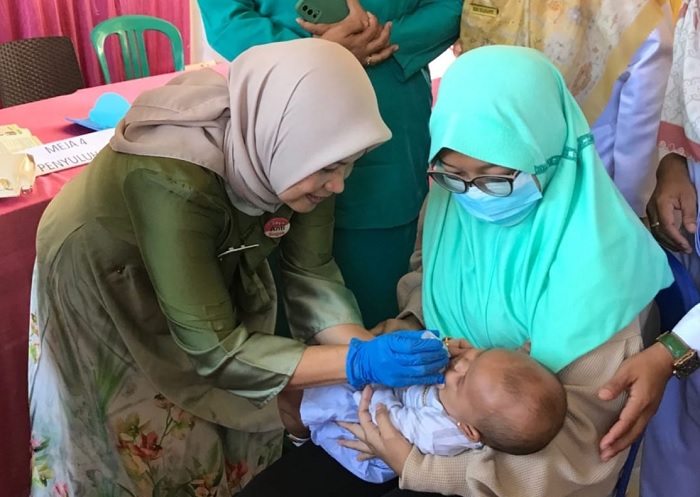In Morocco, people want rape to be reported more often and the sentences of the perpetrators to be increased. They regularly take to the streets. And not without success: this week three men received relatively hefty prison sentences for raping an 11-year-old girl.
Sanaa’s story caused a massive uproar earlier this month. In 2021, the then 11-year-old girl was repeatedly raped by three men from the nearby village. “When my car was gone, they knew she was home alone,” says father Mohamed from his home in northwestern Morocco.
The perpetrators threatened to kill Sanaa and her parents if she spoke about the rape. For a long time Mohamed did not know about the abuse. It wasn’t until the girl became pregnant that her family found out.
“A man from the village told me: ‘Your daughter is pregnant’, but I didn’t believe him,” says father Mohamed.

‘When I heard the verdict, I was defeated’
For days there were protests at the court against the low sentences and the ‘favorite politics’ of the judge. In Morocco, the punishment for rape is 5 to 10 years in prison. For a minor victim, the sentence is 10 to 20 years.
If a victim loses her virginity during the rape, as Sanaa did, the sentence could be up to 30 years in prison. Nevertheless, research by the organization Masaktach (‘I will not remain silent’) shows that 80 percent of the perpetrators receive a sentence of less than 5 years.
According to lawyer Ghizlane Mamouni, the reason for this lies with the judges. “They are Moroccan citizens and the patriarchy is in the way. It is a disease in our society that affects everyone, including judges,” says Mamouni. “In the case of Sanaa, the judge chose to take mitigating circumstances into account. For example, the perpetrators had no criminal record. The judge also did not think the crimes were serious enough to impose a sentence of ten to thirty years.”
Reforms
Mamouni is one of the lawyers who supports Sanaa in her case, which she does from her NGO Kief mama Kief According to the lawyer, it was difficult for Sanaa to get legal support, especially because of her social status. Sanaa is a poor girl from a small village. “From a financial point of view, legal support was difficult to reach, but also in terms of knowledge. People from rural areas often do not know which NGOs there are that could help them.”
The anger in Morocco is not limited to the protesters on the streets. Politicians within the government also think it is time for change. Last year, the government announced reforms that are expected to be implemented this year. “We hope, among other things, for the legalization of abortion. Abortion was not an option for Sanaa, because it now carries a prison sentence of two to five years in Morocco. I also expect a minimum sentence that judges are not allowed to deviate from, even in extenuating circumstances.” says Mamouni.
According to professor of social movements Rachid Touhtouh, the protests and reforms are part of a larger movement in Moroccan society. “Moroccan society is developing. There is more and more education and poverty is decreasing. I think we will see more things like this in the future.”
Higher punishments
“We don’t want a revolution of Moroccan culture. We don’t encourage abortion, we don’t encourage extramarital relations, but we ask for individual freedoms,” Mamouni said of the protest movement.
In the case of Sanaa, the protest turned out to be for good reason: on appeal, the perpetrators were given higher sentences last week. One perpetrator was sentenced to 20 years in prison, the other two to 10 years in prison. “I was amazed,” says Touhtouh. “The perpetrators have received a much higher sentence in a very short time. That means that there is more and more awareness in our society.”


